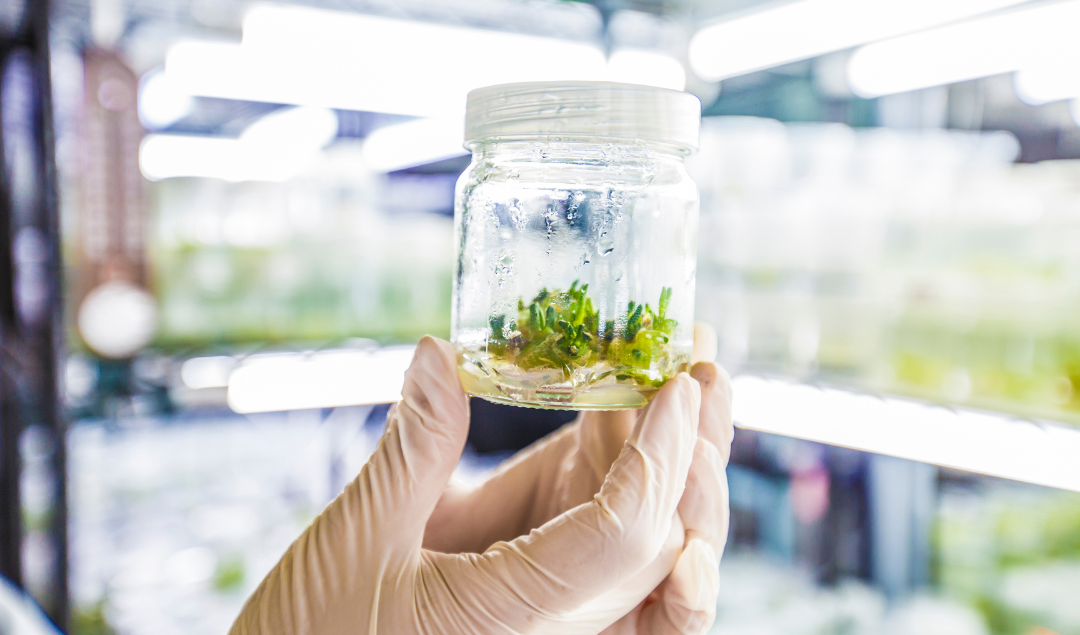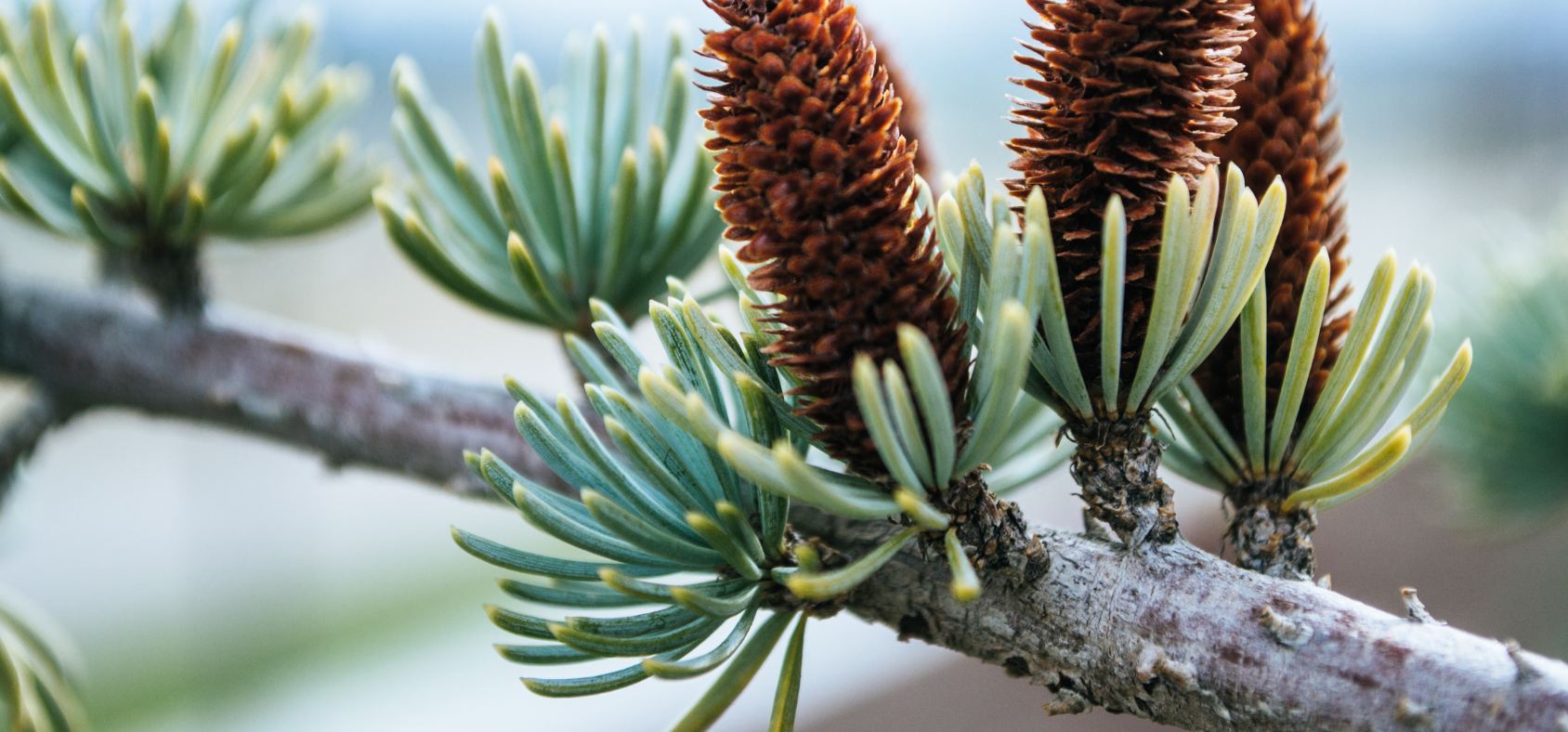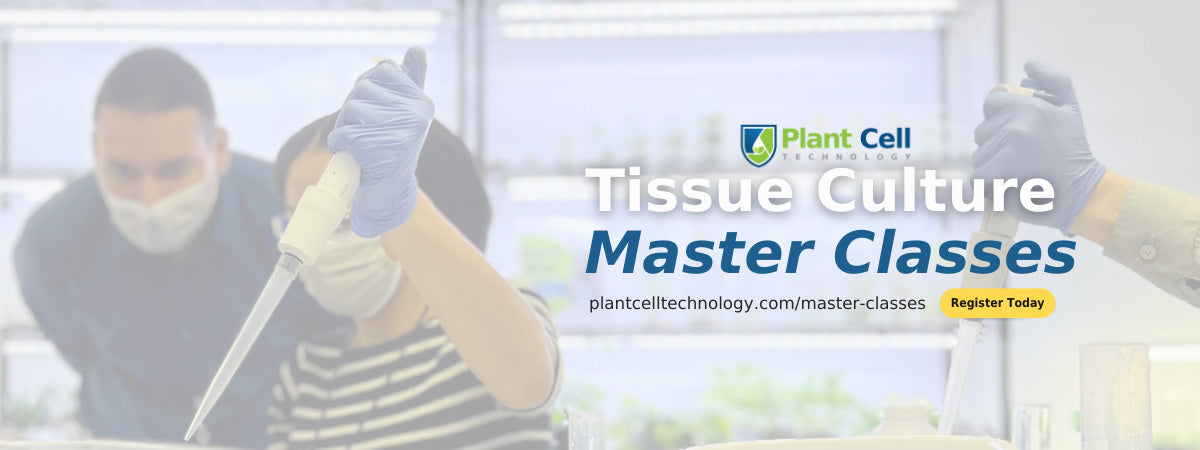
How Tissue Culture Will Make Medical Cannabis More Affordable
As a content and community manager, I leverage my expertise in plant biotechnology, passion for tissue culture, and writing skills to create compelling articles, simplifying intricate scientific concepts, and address your inquiries. As a dedicated science communicator, I strive to spark curiosity and foster a love for science in my audience.


While there are people who can afford medical cannabis, there are others that just can't reach that deep into their pockets and still pay all their other monthly bills. This is not us saying, but many reports claim the same too.
Introduction
As the global cannabis industry expands and strives for improved growing efficiency, multiple companies are turning towards tissue culture methods. The majority of these seemingly high-tech methods are based on tried and tested horticultural practices that are essential for sterile propagation.
While these methods were previously only used by growers of ornamental plants, food, and other hard-to-grow plants, a multitude of cultivators are now seeking efficiency in cannabis cultivation through tissue culture. Consistent and reliable cannabis - that is the cornerstone of a healthy and sustainable medical marijuana industry.
Unfortunately, these characteristics often come at a price, as we can see in today's medical cannabis industry. While there are people who can afford medical cannabis, there are others that just can't reach that deep into their pockets and still pay all their other monthly bills. This is not us saying, but many reports claim the same too.
Here're some articles on the "ridiculous pricing of medical marijuana in Minnesota" and "effective and yet expensive medical cannabis for New Zealanders". Both articles report the effectiveness of medical cannabis for patients, however, their cost limit patients for their prolonged use.
Why Medical Cannabis Is Ridiculously Expensive?
It's mainly due to:
- Imposed restricted regulations
- Compliance cost of production
- Physicians having limited understanding of it
- Challenges in production using traditional techniques

What is the answer?
A growing process that is clean, safe, and reproducible. By having a cultivation process such as tissue culture, cultivators will be able to grow cannabis that can meet high demands and still offer consistent, high quality.
Though the plant can also be grown using traditional techniques, such as seeds and cutting. However, the technique have limitations, such as lack of advanced breeding and production true-to-type seed while using seeds, and requirement of a large space, decreases in the vigor of plants over time, and chances of cutting harboring diseases in the case of cuttings.
Tissue Culture
Plant tissue culture propagation is a sustainable solution for large-scale, quality cannabis. It is for this reason that many industry professionals consider tissue culture the future for the cannabis industry. While tissue culture is a far cry from farming, there are many advantages that tissue culture can offer.
Could the overall start-up cost be high? Perhaps. But in the long run, a medical marijuana industry that is primarily fueled by tissue culture practices could see a reduction in overhead costs. From just a couple of cells, thousands of plants can be grown. How does this work? Well, if you want a detailed step by step guide, you can check out this blog post we recently put together for you on the step by step process.
Here's the short and sweet version:
- Plant cells or tissues are gathered from a mother plant that contains the desired genetics and characteristics. This is key in the medical marijuana industry, as specific cannabinoid profiles are often required.
- These cells are then grown in media culture. This preparation should contain the correct blend of hormones and nutrients that the plant requires for optimum growth. Enough light should be provided, and sterile conditions should be observed at all times.

What are the General Advantages of Tissue Culture
Growing cannabis with tissue culture systems offers these benefits:
- Tissue culture could revitalize cultivations and encourage more vigorous plants than plants grown from cannabis seeds or cuttings.
- Plants grown through tissue culture can be genetically altered to possess high yielding qualities. Aside from this, just a few cells from a mother plant carrying the sought after genetics can be used as a source for thousands of identical plants.
- Plants that have suffered from systemic diseases can be regenerated using meristems, which are tissue that's free from any type of contaminants, such as viruses and viroid (e.g. HpLVD), and provide you disease-free plants.
- Improved propagation efficiency and higher yields. From 100 traditional cuttings or collected plant matter, approximately 70 000 clones can be produced each year. For example, if you begin with 200 vials, then you could be growing 2 million plants per year.
- TC uses approximately one-tenth of the space that traditional cloning uses, which has a direct economic impact on the cannabis industry, whether medical or recreational. What's more, less space needed for the cultivation usually equates to fewer overheads for the growing company.
- Efficiency is the name of the game, and efficiency is the prime reason TC is infiltrating the cannabis market. Per square foot, it is proven that TC is 100x more efficient than traditional cultivation methods. 300 square feet can home approximately 2 million clones.

Standard Cloning vs. Tissue Culture
Although cannabis micropropagation is a form of cloning plants, tissue culture holds some advantages over traditional cloning methods
1. Genetic Preservation
Regular clones are highly susceptible to genetic changes and mutations. Taking a clone from a mother plant does not guarantee that the clone will carry the same genes. Tissue cultured plants, on the other hand, will be an identical genetic match to the mother plant. This increases operational efficiency for companies looking to reduce overhead costs. Furthermore, exact strains are vital for cannabis businesses' finished products, especially for the medical value. In other words, by using tissue culture to cultivate your cannabis, you will be growing true clones.

2. Contamination Control in Cannabis
More control over plants means less time and resources spent on treating pathogens, pests, and other detrimental environmental issues. Tissue culture clones are cultivated from cells under stringent sterile conditions, and therefore, the pathogens that may have been present in the mother plant will not be transferred to the TC clones. Furthermore, abnormalities can be spotted in tissue culture clones much earlier than in traditional clones. This inhibits the pathogens from maturing with your crop and eventually causing costly damage control. If there is any contamination in the TC cultures, it can be easily rectified using PPM™.
This preservative mixture can be added before autoclaving and will prevent contamination in cannabis plants as well. PPM™ cannabis cultures will have drastically lower chances of contamination. With more and more people turning to medical cannabis, the industry will have to streamline its production and reduce overhead costs so that more people can afford medical marijuana instead of supporting the cheaper illicit trade. While we see only a handful of companies embracing tissue culture today, this will begin to change as the market continues to mature. If more cannabis businesses embrace tissue culture in the near future, we can expect to see higher quality products at more affordable prices.
Become a pro at meristem dissection and tissue culture through our cannabis tissue culture master class.

Tissue culture, including meristem culture, has a major role to play in producing healthy plants and preserving elite varieties. However, the process is not that easy when you don’t have experience in it.
Moreover, it will take months for you to create or develop your own procedure—which will require mixing different types and concentrations of chemicals to induce division and differentiation in tissues.
Imagine how much time and money you’ll be required to invest in it!
That’s why we have brought you our comprehensive “Cannabis Tissue Culture Masterclass”. It will be a 3-days class starting from April 20-22, 2023. The class will be conducted by one of the legends in the Cannabis Tissue Culture Industry, Bill Graham.
In this class, you won’t only learn how to produce meristem culture and preserve the genetics of your plant, but a range of other topics, including Pathogen remediation, sterilization techniques, synthetic seed technology, and many more.
Here’s our complete curriculum.
This a one of the most popular Master Class, for which booking has already been started. And, for one-on-experience with our tissue culture expert, only a limited number of seats are available.
So, if you are interested in giving a boost to your Cannabis business, then book your seats TODAY!
Blog Categories
View by Level
Popular Blogs

Media pH: Why It Matters More Than You Think in Plant Tissue Culture
Introduction Plant tissue culture is a cornerstone technique in modern plant biotechnology, enabling the propagation of plants under sterile and...
Read More
Can We Grow Wood in a Lab? The Future of Tissue Culture in Forestry
Introduction Wood has long been a cornerstone of human civilization—used for shelter, tools, paper, energy, and countless everyday items. However,...
Read MoreSubscribe to Our Newsletter








Join the conversation
Your email address will not be published. Required fields are marked